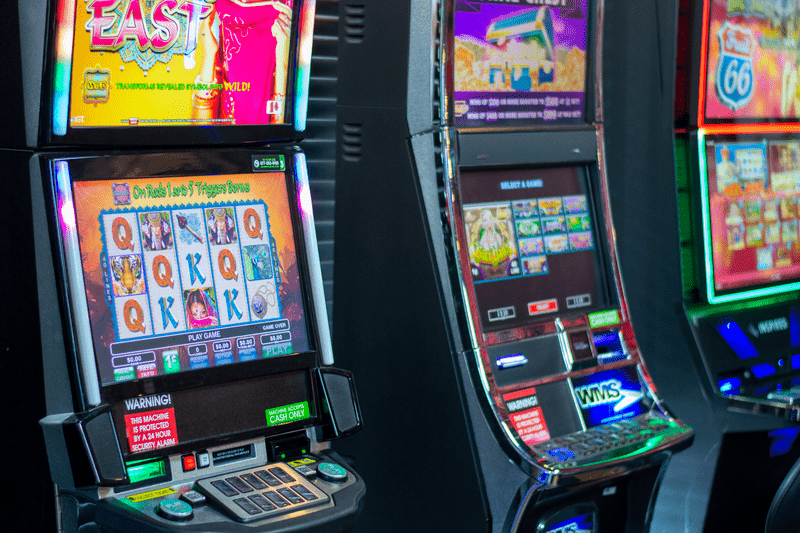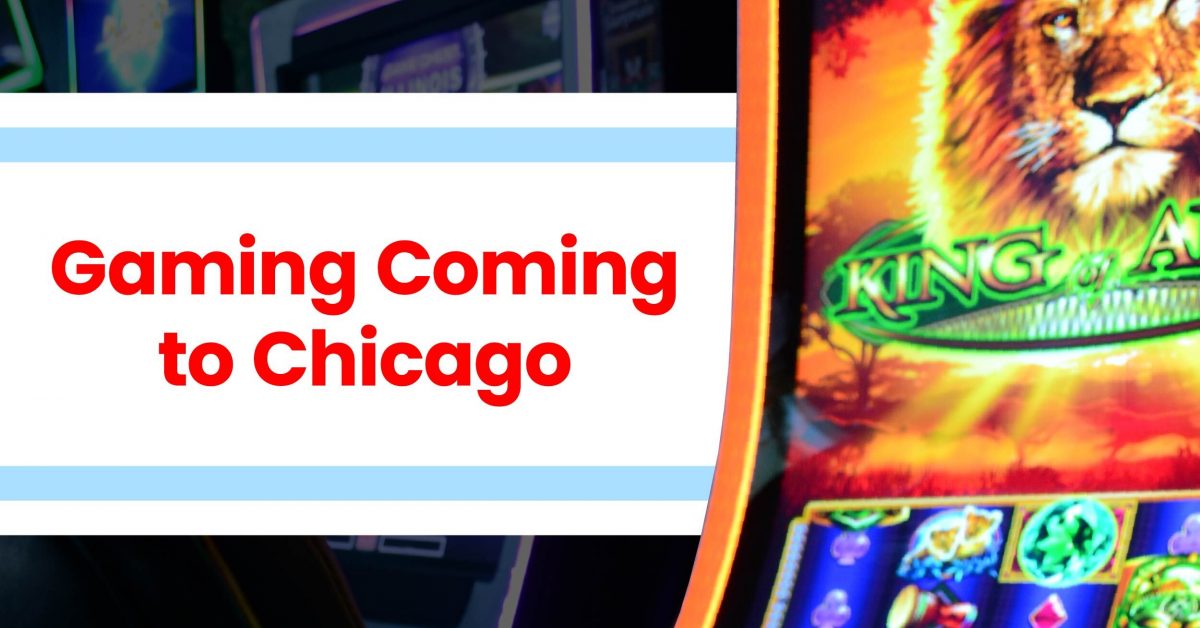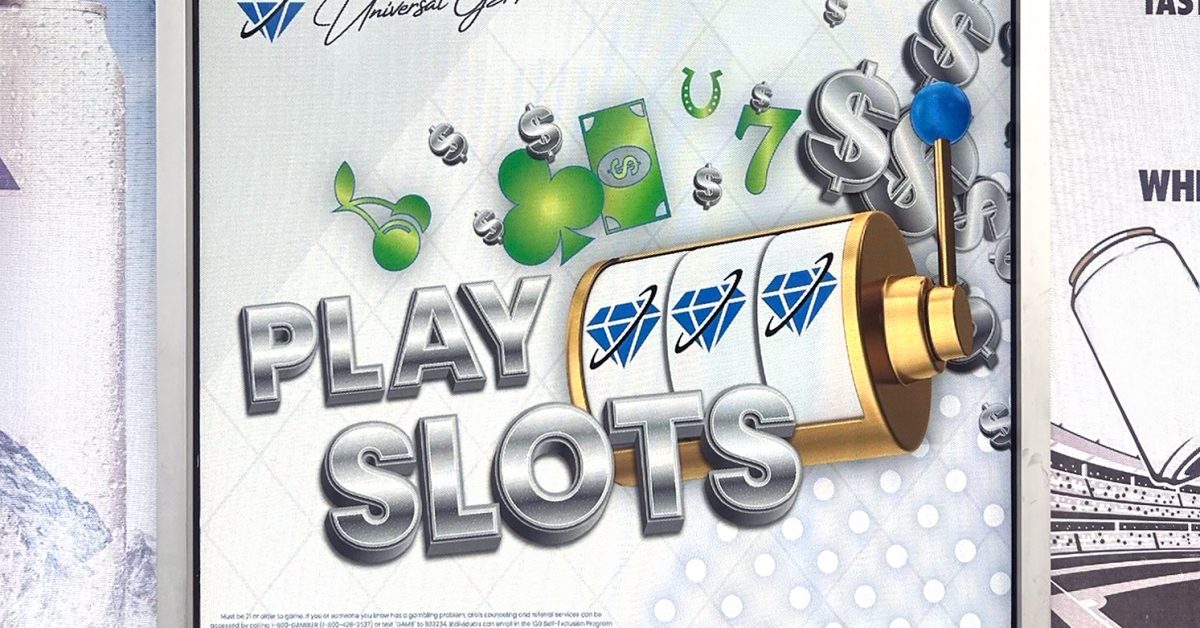
Quick Summary
- Learn what’s required to legally offer video gaming in Illinois – from eligibility to documentation.
- Understand the benefits of being a licensed location, including increased customer traffic and revenue.
- Discover how to apply for a gaming license and avoid common application delays.
- Get step-by-step guidance on compliance, fees, and what to expect during the approval process.
Introduction
This guide explains the key requirements for obtaining an Illinois gaming license, based on current state regulations and industry practices. Following the remarkable surge in revenues in recent years, many bars, restaurants, and gaming cafes are exploring the opportunity to offer video gaming. Whether you’re just starting to research Illinois gaming license requirements or preparing to apply, this article will help you navigate the process legally, confidently, and without costly delays.
Table of Contents
- Benefits of Obtaining a Gaming License in Illinois
- Overview of the Illinois Gaming License Process
- Eligibility Requirements for Obtaining a Gaming License in Illinois
- Application Process for Obtaining a Gaming License in Illinois
- Compliance and Regulations
- Financial Obligations and Taxes
- Maintaining and Modifying a Gaming License
- Summary
- FAQs (Frequently Asked Questions)
Benefits of Obtaining a Gaming License in Illinois
For those interested in hosting video gaming terminals (VGTs) (sometimes called ‘slot machines’ or ‘video slots’) the license is the official sanction from the State of Illinois. Along with being a legal requirement, It instills confidence in your patrons so they can be assured that the games they play comply with state laws.
Furthermore, holding an Illinois gaming license opens doors to valuable partnerships and collaborations within the gaming community. Licensed establishments gain credibility, possibly making it easier to secure financing, attract investors, and form mutually beneficial alliances. With an increasingly competitive landscape, having the proper credentials becomes a distinguishing factor that can elevate a business to new heights of success.
Beyond the evident advantages, Illinois gaming licenses come with a sense of responsibility and accountability. The state places a premium on the protection of consumers and the prevention of illicit activities. By obtaining an Illinois gaming license, business owners commit to maintaining the highest standards of integrity. This includes safeguarding the interests of their patrons, and adhering to the stringent regulatory framework imposed by the Illinois Gaming Board (IGB).
Overview of the Illinois Gaming License Process
Let’s start by understanding the fundamentals of Illinois gaming license requirements. To begin, you will want to review what types of businesses that qualify for operating VGTs.
Aspiring gaming establishments must then navigate a series of meticulous procedures, submit various documentation, and demonstrate their ability to meet the state’s strict requirements.
In this article, we will guide you step-by-step through the application process of meeting Illinois gaming license requirements, shedding light on the essential documents, background checks and other prerequisites. We’ll also address common challenges and pitfalls that applicants may encounter along the way, offering expert insights and practical tips to streamline the process and enhance the prospects of a successful application.
You can read more if you’re interested in a brief history of the Video Gaming Act that legalized VGTs in Illinois.
Eligibility Requirements for Obtaining a Gaming License in Illinois
Here are the key eligibility aspects of obtaining an Illinois gaming license set forth by the Illinois Gaming Board (IGB) every applicant should know:
- Age and residency requirements
- Background checks that include criminal records and any past associations with unsuitable individuals or entities
- Compliance with Illinois Gaming Board (IGB) regulations including responsible gaming practices and other directives outlined by the board
- Documentation and application fees that sometimes includes financial statements, tax information, ownership details, and minor fees
Before delving into the Illinois gaming license application process, it is imperative to understand the eligibility criteria set forth by the Illinois Gaming Board (IGB). Meeting these requirements is essential for ensuring a smooth and successful application.
1. Age Requirements: To be eligible for an Illinois gaming license, applicants must be at least 21 years old. Read more for further information on eligibility requirements for video gaming terminals.
2. Background Checks: A comprehensive background check is an integral part of Illinois gaming license requirements. The IGB thoroughly investigates the personal and criminal history of each applicant and anyone else significantly involved in the gaming operation. This investigation includes examining criminal records and any past associations with unsuitable individuals or entities. The IGB seeks to ensure that only individuals of good character and financial integrity are granted a gaming license.
3. Compliance with Illinois Gaming Board Regulations: Aspiring license holders must demonstrate a clear understanding of and commitment to complying with the regulations set by the IGB. This includes strict adherence to responsible gaming practices and other directives outlined by the board. An applicant’s ability to meet these stringent requirements is crucial in obtaining and retaining the Illinois gaming license.
4. Documentation and Application Fees: The application process requires the submission of several documents, which may include your establishment’s lease or deed and, at times, some financial statements, tax information, ownership details and more. Assembling a well-organized and complete set of documents is vital for a seamless application process. Failure to provide the necessary documentation or any discrepancies found during the review can lead to delays or even denial of the application.
Furthermore, applicants should be prepared to pay application fees and any related costs as part of the licensing process. Establishments must pay a $100 fee to the IGB upon application, and then $100 every year after licensure. Many municipalities charge their own license or permit fees which often vary in cost. It is essential to budget for these expenses and ensure prompt payment to avoid any disruptions to the application process.
Application Process for Obtaining a Gaming License in Illinois
To ensure the integrity and accountability of gaming operations within the state, the application process entails multiple stages and requires the submission of various forms and supporting documentation.
- Understanding the application forms
- Required supporting documentation
- Proof of identity and residency
- Business entity documents
- Gaming operation plans and security measures
- Application submission and review process
- Background investigations and public hearings
- License issuance and renewal
Keep reading below for an in-depth overview of these essential steps involved in securing an Illinois gaming license:
1. Understanding the Application Forms: The first step toward meeting the Illinois gaming license requirements is to get a clear understanding of the application forms. The easiest way to do this is by coordinating with a licensed Terminal Operator (TO) that is intimately familiar with the process. The right Terminal Operator will walk you through these forms and, upon completion, create your online application with the IGB. It is crucial to thoroughly review the instructions accompanying each form and to provide the most accurate and honest information prior to submission.
2. Required Supporting Documentation: Accompanying the application forms, prospective license holders must submit a comprehensive set of supporting documentation. This typically includes personal information, business details and gaming operation plans.
3. Proof of Identity and Residency: As part of the application process, individuals must provide valid proof of their identity and residency, such as a government-issued photo ID or passport.
4. Business Entity Documents: If the applicant is operating as a business entity, they must furnish the relevant organizational documents, such as articles of incorporation, partnership agreements, or limited liability company (LLC) operating agreements. These documents establish the legal structure of the business and the roles and responsibilities of its owners.
5. Financial Statements and Tax Returns: Though rare, prospective license holders may be asked by an IGB agent to disclose their financial standing by submitting financial statements, bank statements, and tax returns from previous years. This information can be crucial for the IGB to assess the applicant’s financial suitability and ability to operate a gaming establishment responsibly.
6. Gaming Operation Plans and Security Measures: Applicants may be asked by the IGB to outline detailed plans for their gaming operations, encompassing aspects like responsible gaming practices, security measures to prevent fraud and illegal activities, marketing strategies, and employment policies. The IGB places a strong emphasis on responsible gaming practices and expects license holders to prioritize player protection.
7. Application Submission and Review Process: Once all of the necessary forms and documentation are compiled, applicants must submit the complete online application package to the IGB. The board will then conduct a thorough review of the submitted materials to assess compliance with state regulations and the applicant’s suitability to hold a gaming license.
8. Background Investigations: The IGB carries out extensive background investigations on the applicant and other key individuals involved in the gaming operation. All beneficial owners and persons with significant influence or control (“PSIC”) over the establishment will need to provide personal information and submit fingerprints through an IGB-approved fingerprint vendor. These investigations aim to verify the applicant’s character, reputation, and financial integrity.
9. License Issuance and Renewal: If the application is deemed suitable and the applicant meets all the necessary requirements, the IGB will issue the Illinois gaming license. It is essential to note that gaming licenses are subject to renewal every two years. License holders must adhere to ongoing compliance and reporting requirements to maintain their license in good standing.
As the first Terminal Operator to install VGTs in Illinois, Universal Gaming Group has helped hundreds of businesses obtain their gaming license. Contact us today and we will help you every step of the way.
Compliance and Regulations
The IGB’s regulatory framework is designed to ensure the integrity, fairness, and accountability of the gaming industry while safeguarding the interests of players and the public. This includes:
- Illinois Gaming Board rules and regulations
- Responsible gaming policies and procedures
- Surveillance and security requirements
- Auditing and reporting obligations
Maintaining compliance with the Illinois Gaming Board (IGB) rules and regulations is of utmost importance for all gaming license holders in the state.
Illinois Gaming Board Rules and Regulations: The IGB establishes comprehensive rules and regulations that govern all aspects of gaming operations within the state, including those for casinos and regulations for video gaming terminals (VGTs).
These regulations cover a wide range, including Illinois licensing requirements, responsible gaming practices, advertising and marketing guidelines, financial reporting, record-keeping, and employee licensing and background checks. Staying abreast of the evolving rules is crucial for license holders to avoid any violations that could result in penalties or revocation of their licenses.
Responsible Gaming Policies and Procedures: Promoting responsible gaming practices is a core priority for the IGB. License holders are required to implement robust responsible gaming policies and procedures to protect patrons from the potential harms of excessive gambling. This includes providing information about responsible gaming resources and training staff to identify and assist individuals who may be experiencing gambling-related problems.
Surveillance and Security Requirements: Terminal Operators are required to maintain stringent surveillance and security measures to ensure the safety and fairness of gaming operations. Video surveillance systems are mandatory to monitor gaming areas, cash handling, and other critical areas to deter fraudulent activities and ensure compliance with gaming regulations. Additionally, establishments must implement strict access controls to restrict anyone under the age of 21 from playing VGTs.
Financial Obligations and Taxes
Operating a gaming establishment in Illinois comes with various financial obligations, including:
- Licensing Fees and Renewal Costs
- Gaming Tax Rates and Reporting
- Record Retention Requirements
Understanding these financial aspects is essential for gaming operators to effectively budget and manage their business operations.
Licensing Fees and Renewal Costs: Obtaining a gaming license in Illinois involves paying an initial application fee of $100. This fee is non-refundable, regardless of whether the application is approved or denied. Additionally, gaming licenses are subject to renewal every two years, however establishments are required to pay the renewal fee annually. It is crucial for gaming establishments to budget for these costs to ensure seamless compliance and continuous operation.
Record Retention Requirements: Any video gaming location that receives a good or service from, or shares the cost of the good or service with, a terminal operator shall make good faith efforts to maintain all records of the goods, services, and shared costs for no less than three years. Typically such goods, services, and shared costs pertain to cooperative marketing activities.
Maintaining and Modifying a Gaming License
Securing a gaming license in Illinois is a significant achievement, but the responsibilities don’t end with obtaining the license. License holders must diligently maintain compliance with the Illinois Gaming Board (IGB) regulations throughout their operational tenure, including:
- Compliance monitoring and inspections
- Reporting changes in ownership or operation
- License transfers and amendments
Additionally, there may be circumstances that necessitate modifications to the existing license. Read more about eligibility for Illinois gaming license renewals.
Compliance Monitoring and Inspections: Once a gaming license is granted, license holders must remain vigilant in ensuring ongoing compliance with IGB rules and regulations. The IGB conducts regular inspections and compliance monitoring to assess license holders’ adherence to the prescribed guidelines. These inspections may cover responsible gaming practices, security measures, financial reporting, and overall operational integrity. License holders are expected to address any identified issues promptly and implement corrective measures as needed.
Reporting Changes in Ownership or Operation: Gaming license holders are obligated to report any significant changes in ownership or operational structure to the IGB. This includes changes in ownership percentages, the introduction of new investors, and alterations to the management team. Timely reporting of such changes is crucial, as the IGB evaluates the suitability of new individuals or entities entering the gaming operation.
License Transfers and Amendments: In some cases, gaming establishments may wish to transfer their license to another party or seek amendments to the existing license. License transfers are not permitted under the Video Gaming Act, however a business may enter into a stock purchase agreement to sell the shares of the corporation or LLC. To facilitate a smooth transfer, the IGB reviews the qualifications and suitability of the new ownership. Similarly, when seeking amendments to the license, such as changes to permitted gaming activities or operating hours, license holders must submit formal requests to the IGB, detailing the proposed modifications and justifications.
License Renewal and Continuing Education: Gaming licenses in Illinois are issued for two years and require periodic updates. License holders must proactively update their license applications before the expiration of their current license, ensuring continuous compliance with IGB requirements.
Summary
Illinois gaming can be a very lucrative business, as proven with a big industry leap in 2023. This article serves as a comprehensive guide for aspiring gaming establishments looking to navigate the intricacies of the Illinois gaming license requirements and obtaining and maintaining a gaming license in Illinois.
By understanding the significance of gaming licenses, meeting eligibility requirements, adhering to regulations, and embracing responsible gaming practices, individuals can unlock a world of opportunities in the thriving gaming industry of Illinois. Universal Gaming Group can help answer any questions, and work with businesses throughout the process of obtaining an Illinois gaming license. Please contact us if you would like some help getting started.
FAQs (Frequently Asked Questions)
- What is the minimum age to obtain a gaming license in Illinois?
- To be eligible for an Illinois gaming license, applicants must be at least 21 years old.
- What are the financial suitability requirements for gaming license applicants?
- Though rarely required, applicants must be prepared to present financial records and a credit history, financial statements, bank statements, and tax returns from previous years. In some cases applicants may be asked to provide business plans. Applicants should also be prepared to pay application fees and any related costs as part of the licensing process.
- Can an individual hold multiple gaming licenses in Illinois?
- Every licensed establishment is required to carry its own individual license, regardless of the previous licensure of the owner.
- What are the responsible gaming measures required by the Illinois Gaming Board?
- License holders are required to implement responsible gaming policies and procedures to protect patrons from the potential harms of excessive gambling. This includes providing information about responsible gaming resources, offering self-exclusion programs, and training staff to identify and assist individuals who may be experiencing gambling-related problems.
- How often do gaming licenses need to be renewed?
- Gaming licenses in Illinois are typically issued for two years and require periodic updates. License holders must proactively update their license applications before the expiration of their current license, ensuring continuous compliance with IGB requirements.
With over a decade of experience in the Illinois gaming and amusement industry, we’ve built strong relationships with local authorities and regulators. If you’re ready to take the next step, contact us today to speak with one of our experts about obtaining your Illinois gaming license.


